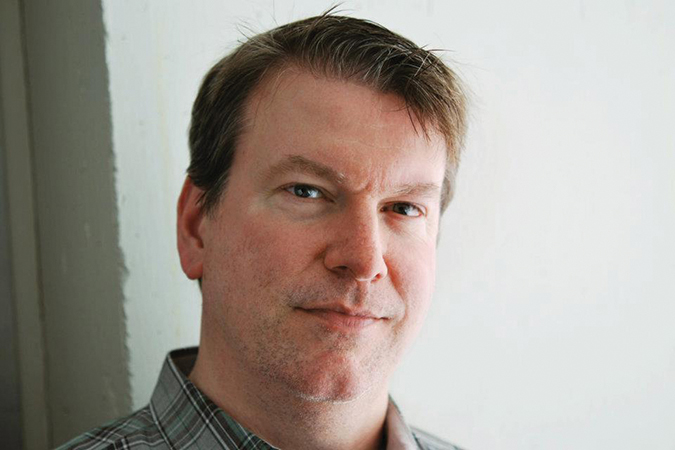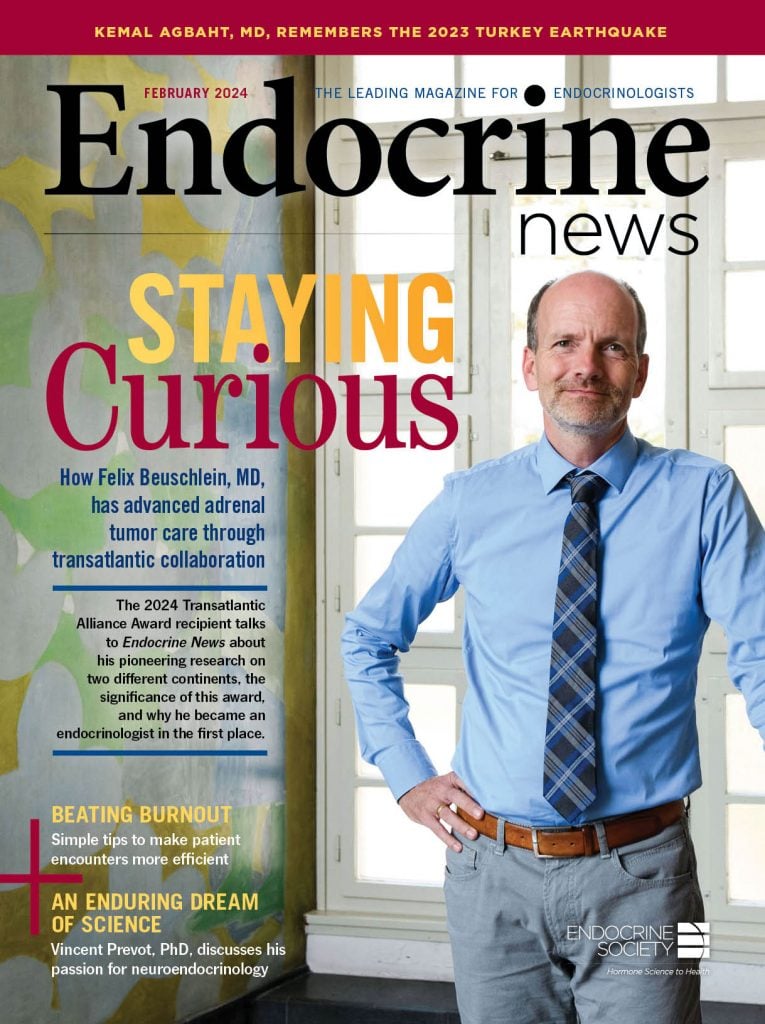
As I’ve often said in this column many times over the past decade, the biggest asset that Endocrine News possesses is you, the members of the Endocrine Society. It is an undeniable pleasure to have such a knowledgeable source of information at our fingertips and not only does it make my job easier, but it also adds even more prestige to the stories we present month after month.
To that end, this issue is devoted to the multifaceted membership of the Endocrine Society starting with our cover story on the 2024 Transatlantic Alliance Award recipient Felix Beuschlein, MD. In “Staying Curious,” writers Kelly Horvath and Glenda Fauntleroy Shaw both talked to Beuschlein about what this award – sponsored by both the Endocrine Society and the European Society of Endocrinology – means to him as well as his pioneering endocrine research on adrenal tumors. Beuschlein says that there is a good proportion of endocrinology that you have to understand, but then you can actually use it. “Hormones are quite logical, but they are exciting, and they shape a person down to the bone, literally,” he says. “So, it’s this combination of very rational aspects — like feedback inhibition and feedforward activation of axes — and physiology, with this other part that is very complex and affects everything in a person.”
Moving into quite a different direction, we mark the one-year anniversary of the devastating earthquake that struck at the heart of Turkey, killing tens of thousands, and leaving even more injured and homeless. However, from that rubble arose hope in the form of clinical endocrinologist Kemal Agbaht, MD, who quickly became a caregiver to an entire community as it struggled to come to grips with a startling new reality. In “Aftershocks: Practicing Endocrinology Amid a Catastrophe,” Senior Editor Derek Bagley talks to Agbaht about how he continued to practice endocrinology among the chaos in an Endocrine News exclusive. Agbaht tells Bagley how earthquakes are a force of nature that cannot be prevented by mankind, however, “humans could prevent disasters by taking the necessary measures,” he says. “Science, conscience, common sense, and respect are all required for a healthier and livable world.”

This month’s Laboratory Notes column by Glenda Fauntleroy Shaw also focuses on one of our European members as we interview Vincent Prevot, PhD, the 2024 Endocrine Society Laureate Edwin B. Astwood Award for Outstanding Research in Basic Science in “An Enduring Dream of Science.” It is obvious from the interview that Prevot relishes the collaboration with his team of scientists who hail from all over the world. “We work closely with emerging talents from a multitude of international horizons, including Chile, Greece, India, Italy, Mexico, North Africa, and Spain, as well as French nationals,” he says. “This eclectic mix of backgrounds, encompassing both medical and basic science expertise, adds a unique flavor to our collaborative efforts.”
In “Word of Honour,” Derek talks to one of the Endocrine Society’s emeritus members, John William Honour, PhD, FRCPATH, about his recent book, Steroids in the Laboratory and Clinical Practice, published last year. He not only discusses his relationship with the Endocrine Society — he’s been a member since 1979! — but he goes into detail about what readers can expect from his new tome and why he thinks it s the definitive book on steroids for researchers and clinicians alike.
Endocrine Society member Michael Morkos, MD, from the IUH Thyroid and Parathyroid Center at the Indiana University School of Medicine in Indianapolis, has authored this month’s Practice Resources column where he gives his own personal tips for other clinicians on how to make the most of the time spent with patients. In “Beating Burnout,” Morkos discusses his own best practices for managing patients as well as their data to keep the interaction as efficient and stress-free as possible.
It’s not hard to see, even from this simple editor’s note, how much we appreciate Endocrine Society members around the world. And regardless of where you live, if you have an idea for a story you’d like to share with the global endocrinology community, please contact me at: m[email protected]g.

